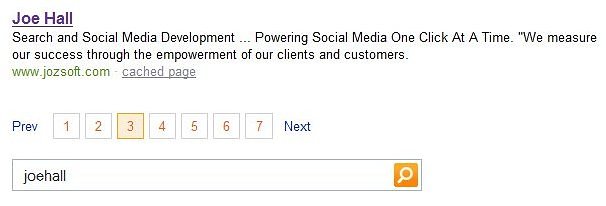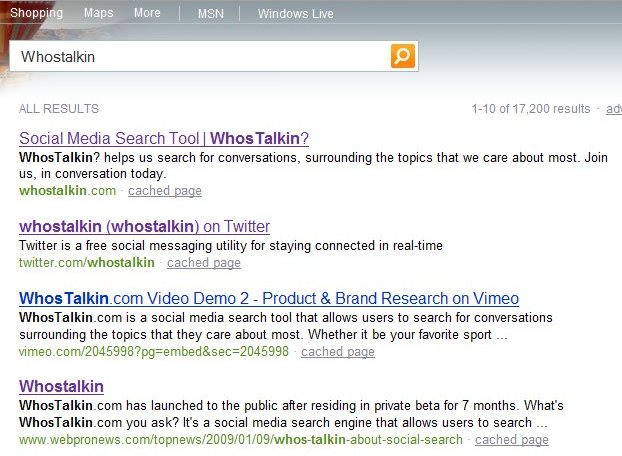Microsoft’s brand new search product, Bing, was unveiled to the public over the weekend. Over all the response has been moderately positive. Most of the attention has gone into Bing’s use of technology that Microsoft acquired from Powerset, that provides a series of related search terms for each query. However, it is going to take a lot more than copying what Google already does to bring down the search giant.
Its becoming increasingly apparent that Microsoft plans on a very aggressive strategy against Google with Bing. So aggressive that they have begun manipulating their own search engine results to increase click through rates to web sites they have indexed. Whats that you say? Microsft playing dirty?
Here’s how their bait and switch game works. One of the first queries I ran on Bing was my screen name that I use across several different networks “joehall”. On the bottom of the third page of results is a listing to my company’s web site. However, in Bing when running only this query the title of the site appears as my name “Joe Hall”, despite the fact that that page has never been titled anything but the name of the company “JOZSOFT”. The term “Joe Hall” appears once on that page in the sales copy but no other time in the markup.

Therefore I ran my second query using my name brand instead and sure enough the same site appears at the top of the results with the correct page title.

Therefore, I decided to try a second gambit of test using another one of my name brands. This time around I used “Whostalkin” as my query. Sure enough, the fourth site listed is an article by web pro news with the title completely identical to the query I ran. However, when the user clicks the result they will see the article title and the page title aren’t at all what is listed in Bing for that query.

So now the question remains. Why would Bing want to dynamically manipulate the page titles to match search queries? Well, thats easy: higher click through rates! The more referring traffic that web masters receive from Bing, furthers Bing’s brand and manifest its self in the minds of publishers as a major player in the search space. This is an important part of any promotional strategy at the early stages of a new product, and web masters are already starting to take notice.
The obvious backlash of this strategy is that if Bing makes a habit of manipulating page titles then they run the risk of weakening the quality of their results of by giving a false impression of relevancy to the user.
So far I have only run this test on several queries. Has anyone else seen this issue on Bing? If so let us know in the comments with examples!





![AI Overviews: We Reverse-Engineered Them So You Don't Have To [+ What You Need To Do Next]](https://www.searchenginejournal.com/wp-content/uploads/2025/04/sidebar1x-455.png)